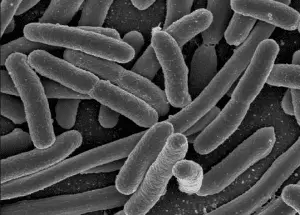By Sayer Ji
Contributing Writer for Wake Up World
A study published in Letters in Applied Microbiology shows that a commonly used food probiotic known as Lactobacillus plantarum is capable of degrading dangerous pesticide residues in wheat (pirimiphos-methyl), confirming the traditional fermentation-based food-processing technique known as culturing can significantly improve the safety of conventional food.
The researchers found that Lactobacillus plantarum enhanced the degradation of the pesticide from 15-34%, a close to 81% enhancement. The significance and impact of the study was described as follows:
“Pesticide residues are an unavoidable part of the environment due to their extensive applications in agriculture. As wheat is a major cultivated cereal, the presence of pesticide residues in wheat is a real concern to human health. Reduction in pesticide residues during fermentation has been studied, but there is a lack of data regarding pesticide residues dissipation during cereal fermentation. Present work investigates the dissipation of pirimiphos-methyl during wheat fermentation by L. plantarum. Results are confirmation that food-processing techniques can significantly reduce the pesticide residues in food, offering a suitable means to tackle the current scenario of unsafe food.”
Conventional wheat and other commonly consumed grains receive post-harvest pesticide treatment to prevent their infestation during storage.[1] Very little degradation occurs during storage, and milling does not significantly reduce the bulk of the chemicals, but in fact results in the distribution of their residues in various processed products. This has raised particular concern in regard to the contamination of baby food products containing cereal ingredients,[2] especially since wheat bound pesticides such as pirimiphos-methyl have been found to have high bioavailability in animals.[3] [4]
The natural health movement has long advocated for reducing the well-known antigenicity and allergenicity of cereal grains through sprouting, fermentation and culturing (e.g. the sourdough process in bread making), but this new finding sheds light on another way in which these traditional methods may reduce the bodily burden of not just natural (e.g. gluten, lectins) but man made toxins, as well.
Previous groundbreaking research has found that lactic acid producing (Lactobacilli) bacterial strains from the fermented cabbage-based Korean food known as kimchi are capable of degrading four different organophosphorous insecticides by using them as a source of carbon and phosphorous.[5] [6] In fact, probiotics have been found to potentially offset a wide range of modern-day toxic exposures, including Bisphenol A, Chemotherapy, Gluten, Aspirin and Sodium Nitrate. [See: 8 Ways Microbes Can Save Us From Ourselves]
Ultimately, the best way to avoid pesticide exposure is to consume organically produced food, or better yet, biodynamically farmed food where no petrochemical inputs are used from the bottom up (soil to harvest). But, failing this increasingly difficult task to obtain entirely chemical-free food, it behooves us to recognize the value of food culturing and fermented food for our health. For additional information read The Amazing Healing Properties of Fermented Food.
Updated September 2014
Article References
[1] http://www.ncbi.nlm.nih.gov/pubmed/16546885
[2] http://www.ncbi.nlm.nih.gov/pubmed/16546885
[3] http://www.ncbi.nlm.nih.gov/pubmed/1527359
[4] http://www.ncbi.nlm.nih.gov/pubmed/1728032
[5] C Phillip Shelor, Andrea B Kirk, Purnendu K Dasgupta, Martina Kroll, Catrina A Campbell, Pankaj K Choudhary. Breastfed infants metabolize perchlorate. Environ Sci Technol. 2012 May 1 ;46(9):5151-9. Epub 2012 Apr 20. PMID: 22497505
[6] Kye Man Cho, Reukaradhya K Math, Shah Md Asraful Islam, Woo Jin Lim, Su Young Hong, Jong Min Kim, Myoung Geun Yun, Ji Joong Cho, Han Dae Yun . Biodegradation of chlorpyrifos by lactic acid bacteria during kimchi fermentation. J Agric Food Chem. 2009 Mar 11;57(5):1882-9. PMID: 19199784
Further articles by Sayer Ji:
- Black Seed Extract ‘Cures’ HIV Patient Naturally
- The Grain That Damages The Human Brain
- The Cancer-Causing Metal Millions Eat, Wear or Have Injected Into Their Kids
- Biophotons: The Human Body Emits, Communicates with, and is Made from Light
-
The 2013 Measles Outbreak: A Failing Vaccine, Not A Failure To Vaccinate
- 3 Evidence-Based Ways To Reverse Skin Aging Naturally
-
Why Is The Food Industry Poisoning Us With Trillions of Nanoparticles?
- How to Clean Your Arteries With One Simple Fruit
- 13 Evidence-Based Medicinal Properties of Coconut Oil
About the author
Sayer Ji is the founder of GreenMedInfo.com, an author, researcher, lecturer, and an advisory board member of the National Health Federation. Google Plus Profile. His writings have been published and referenced widely in print and online, including, Truthout, Mercola.com, New York Times online, The Journal of Gluten Sensitivity, New York Times and The Well Being Journal.
He founded Greenmedinfo.com in 2008 in order to provide the world an open access, evidence-based resource supporting natural and integrative modalities. It is widely recognized as the most widely referenced health resource of its kind.

If you've ever found value in our articles, we'd greatly appreciate your support by purchasing Mindful Meditation Techniques for Kids - A Practical Guide for Adults to Empower Kids with the Gift of Inner Peace and Resilience for Life.
In the spirit of mindfulness, we encourage you to choose the paperback version. Delve into its pages away from screen glare and notifications, allowing yourself to fully immerse in the transformative practices within. The physical book enriches the learning process and serves as a tangible commitment to mindfulness, easily shared among family and friends.
Over the past few years, Wake Up World has faced significant online censorship, impacting our financial ability to stay online. Instead of soliciting donations, we're exploring win-win solutions with our readers to remain financially viable. Moving into book publishing, we hope to secure ongoing funds to continue our mission. With over 8,500 articles published in the past 13 years, we are committed to keeping our content free and accessible to everyone, without resorting to a paywall.







